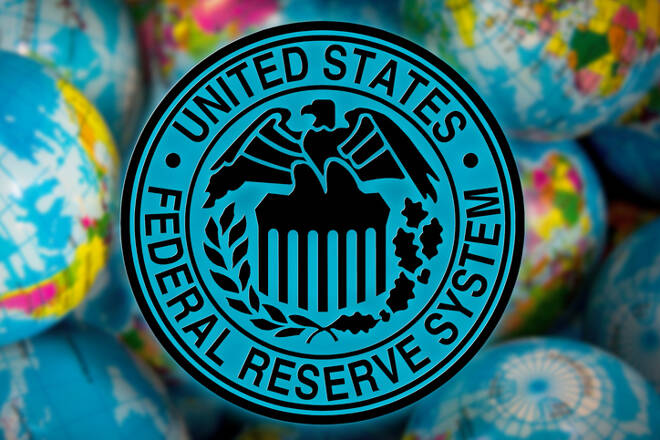Advertisement
Advertisement
Fed Members Agree Economy is Long Way from Reaching Full Strength
By:
Powell, Yellen reiterated their belief that, thanks in large part to fiscal and monetary stimulus, the U.S. economy will see marked growth in 2021.
Federal Reserve Chairman Jerome Powell and Treasury Secretary Janet Yellen spoke about the economic response to the coronavirus in front of the U.S. Senate’s Committee on Banking, Housing, and Urban Affairs on Wednesday. Both reiterated their belief that, thanks in large part to fiscal and monetary stimulus, the U.S. economy will see marked growth in 2021.
“There’s going to be a very, very strong year in the most likely case,” Powell said. “There are of course risks to the upside and downside, but it should be a very strong year from a growth standpoint…Longer run we do not have to raise revenue to support permanent spending that we want to do.”
Yellen said banks have improved their capital positions and should be allowed to continue to buy back their own shares.
“I have been opposed earlier when we were very concerned about the situation the banks would face about stock buybacks,” Yellen said. “But financial institutions look healthier now, and I believe they should have some of the liberty provided by the rules to make returns to shareholders.”
NY Fed’s Williams Says Time Frame for Raising Rates Will Depend on Economy
The timeline for when the Federal Reserve will start to raise rates will depend on what is happening with the economy, which may not return to full strength for some time, New York Federal Reserve Bank President John Williams said on Wednesday.
The U.S. economy could recover more rapidly later this year as coronavirus cases drop and more people are vaccinated, Williams said during a virtual conversation, organized by Syracuse University. But Williams declined to put in a date on when he thought the Fed could start to withdraw some of the fiscal support it is providing, Reuters reported.
Fed’s Daily Says US Economy ‘Long Way’ From Goals
San Francisco Federal Reserve President Mary Daly on Wednesday said the U.S. economy is a “long way” from its goals, as she noted little upward pressure on wages and remarked on the absence of froth in financial in financial conditions, all suggestive of support for keeping the Fed’s foot on the monetary gas pedal, Reuters reported.
Asked her view of the appropriate timing for the Fed’s first interest rate hike, however, Daly declined to say. She told reporters on a call that what’s important is that people “completely understand” the Fed won’t raise rates until employment shortfalls have been eliminated and inflation is not only running at 2% but is also projected to exceed that for some time. “We are not there yet,” she said. “The important thing right now, I think for everyone, is a healthy dose of patience.”
Fed to Set Monetary Policy on Actual Economic Outcomes, Evans Says
Chicago Federal Reserve President Charles Evans on Wednesday said the central bank will set its monetary policy on economic outcomes and will not reduce monetary policy accommodation until it sees actual improvements, Reuters reported.
“We’re looking for actual improvement in the economy and inflation to get back up to our dual mandate objectives of maximum inclusive employment and 2% inflation on average,” Evans said at an event hosted by the Japan America Society of Chicago.
He forecast in the speech that the U.S. economy will grow 6.5% this year, unemployment will fall to 4.5% this year and below 4% next year, and for inflation to rise temporarily before falling back.
Summary
Powell, Yellen and the other Fed policymakers continued to toe the company line that the economy is still not strong enough to implement a change in monetary policy.
For a look at all of today’s economic events, check out our economic calendar.
About the Author
James Hyerczykauthor
James Hyerczyk is a U.S. based seasoned technical analyst and educator with over 40 years of experience in market analysis and trading, specializing in chart patterns and price movement. He is the author of two books on technical analysis and has a background in both futures and stock markets.
Advertisement
